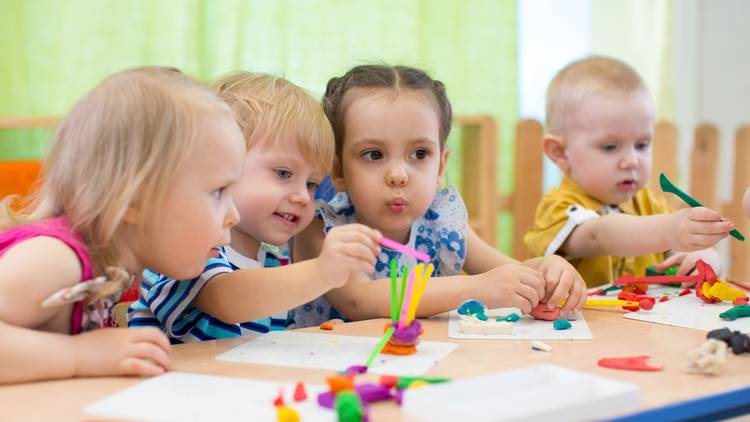Pennsylvania’s Learning Standards for Early Childhood are research-based according to age and development, and they form the foundation for curriculum, assessment, instruction and intervention within early care and education programs.
Pennsylvania’s Learning Standards for Early Childhood were originally developed in 2004 through cross-sector collaboration from departments of Health, Education and Public Welfare (now referred to as Human Services) and representatives from child care, early intervention, school districts, Head Start, higher education, family support programs and researchers. They comprise the primary device for ensuring high quality, consistent child care across Pennsylvania’s programs.
In 2010 Pennsylvania began integrating its early learning standards into the Standards Aligned System (SAS), the K-12 online resource portal designed to provide educators with a framework and integrated tools to enhance their teaching effectiveness. They were revised in 2014, resulting in separate but aligned standards for infants and toddlers, pre-kindergarten, and kindergarten aged children.
Pennsylvania’s Infant and Toddler Learning Standards are divided into three age levels; infant (birth-12 months), young toddler (9-27 months), and older toddler (24-36 months). The revised standards mirror the standards found on the SAS in the learning domains of English Language Arts, Mathematics, Science (including Environment and Ecology), Social Studies, and Social and Emotional Development. Refinements were also made to: Partnerships for Learning (Family Engagement); Approaches to Learning Through Play; Creative Thinking and Expression; and Health, Wellness and Physical Development. In addition, the 2014 Infant, Toddler and Pre-Kindergarten Standards ensure appropriate inclusion for all early care and education programming (home-visiting, Early Intervention, limited English proficiency).
Providers were required to begin using the revised standards in summer 2015.
Reviewed May 2018.




